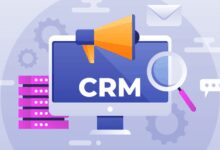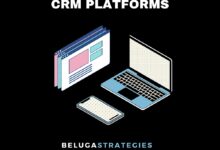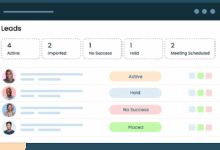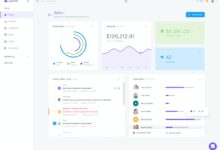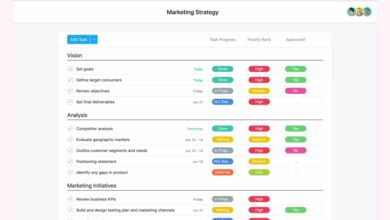Crm database software for small business: Top 7 CRM Database Software for Small Business in 2024: Ultimate Power Guide
In today’s fast-paced digital world, every small business needs a smart edge. Enter CRM database software for small business — your ultimate tool to organize, automate, and supercharge customer relationships with precision and power.
Why CRM Database Software for Small Business is a Game-Changer

Small businesses often operate with limited resources, tight budgets, and high expectations. In such a competitive environment, managing customer relationships efficiently isn’t just a luxury — it’s a necessity. CRM database software for small business transforms how entrepreneurs interact with clients, track sales, and streamline operations.
Boosting Customer Retention and Satisfaction
One of the most powerful benefits of CRM database software for small business is its ability to improve customer retention. By storing detailed customer profiles, purchase history, communication logs, and preferences, businesses can deliver personalized experiences that foster loyalty.
- Automated follow-ups keep clients engaged.
- Personalized marketing campaigns increase conversion rates.
- Quick access to customer history reduces response time.
“Companies using CRM see a 36% increase in customer satisfaction.” — Nucleus Research
Streamlining Sales and Marketing Efforts
CRM tools integrate sales pipelines, marketing automation, and lead tracking into one unified platform. This eliminates data silos and ensures your team is always on the same page.
- Track leads from first contact to final sale.
- Automate email campaigns based on customer behavior.
- Assign tasks and set reminders for follow-ups.
For example, platforms like Zoho CRM offer drag-and-drop campaign builders that allow small teams to launch targeted marketing efforts without needing a dedicated specialist.
Improving Internal Collaboration and Efficiency
CRM systems break down communication barriers between departments. Sales, marketing, and customer support can all access the same real-time data, reducing errors and duplication.
- Shared calendars and task lists keep teams aligned.
- Role-based access ensures data security.
- Mobile access enables remote work and field sales.
According to a study by Salesforce, small businesses using CRM report a 29% increase in team productivity.
Key Features to Look for in CRM Database Software for Small Business
Not all CRM systems are created equal. For small businesses, choosing the right CRM database software for small business means prioritizing functionality, ease of use, and scalability. Here are the essential features you should consider.
Contact and Lead Management
The foundation of any CRM is its ability to store and organize customer information. A robust CRM database software for small business should allow you to:
- Import contacts from email, spreadsheets, or social media.
- Tag and segment leads based on behavior or demographics.
- Track interactions across email, phone, and social channels.
Tools like HubSpot CRM offer free contact management with unlimited users, making it ideal for startups.
Sales Pipeline and Automation
A visual sales pipeline helps small businesses track where each lead stands in the buying journey. Automation features reduce manual work and ensure no opportunity slips through the cracks.
- Customizable deal stages (e.g., Prospecting, Negotiation, Closed-Won).
- Automated task creation after a lead is qualified.
- Email templates and sequences for consistent outreach.
For instance, Pipedrive is known for its intuitive pipeline interface, making it a favorite among sales-focused small businesses.
Reporting and Analytics
Data-driven decisions are crucial for growth. The best CRM database software for small business provides real-time reports on sales performance, customer behavior, and marketing ROI.
- Dashboard widgets for KPIs like conversion rates and revenue forecasts.
- Exportable reports for stakeholder presentations.
- AI-powered insights to predict future trends.
Platforms like Zoho CRM include AI-driven analytics called Zia, which can suggest the best time to contact a lead or predict deal closure probabilities.
Top 7 CRM Database Software for Small Business in 2024
Choosing the right CRM can be overwhelming. To simplify your decision, we’ve curated a list of the top 7 CRM database software for small business, based on features, pricing, user reviews, and scalability.
1. HubSpot CRM
HubSpot CRM is a powerful, free-to-start platform that’s perfect for small businesses looking to grow. It offers a clean interface, excellent integrations, and a wealth of educational resources.
- Free forever plan with core CRM features.
- Seamless integration with HubSpot’s marketing, sales, and service hubs.
- Live chat, email tracking, and meeting scheduling tools.
Its strength lies in its ecosystem — as your business grows, you can upgrade to paid tiers without switching platforms. Learn more at HubSpot’s official site.
2. Zoho CRM
Zoho CRM is a feature-rich solution that balances power and affordability. It’s ideal for small businesses that need advanced automation without a steep learning curve.
- AI-powered sales assistant (Zia) for predictive insights.
- Customizable workflows and approval processes.
- Multi-channel communication (email, phone, social, chat).
Zoho also integrates with over 40 other Zoho apps, making it a comprehensive business suite. Visit Zoho CRM to explore pricing and demos.
3. Pipedrive
Pipedrive is built for sales teams that want a visual, pipeline-first approach. It’s intuitive, mobile-friendly, and highly effective for managing complex sales cycles.
- Drag-and-drop pipeline management.
- Activity reminders and automated workflows.
- Integration with Gmail, Outlook, and Slack.
Its strength is simplicity — it focuses on what matters most to sales-driven small businesses. Check it out at Pipedrive.com.
4. Salesforce Essentials
Salesforce, the global CRM leader, offers Salesforce Essentials — a streamlined version designed specifically for small businesses with up to 10 users.
- Global scalability and enterprise-grade security.
- Pre-built templates for common industries.
- AI-powered Einstein Analytics for smarter forecasting.
While more expensive than some alternatives, it offers unmatched scalability. Learn more at Salesforce Essentials.
5. Freshsales (by Freshworks)
Freshsales combines CRM functionality with built-in phone, email, and chat capabilities. It’s a great all-in-one solution for small teams.
- AI-based lead scoring to prioritize hot prospects.
- Visual deal pipeline and timeline view.
- Free plan available with up to 10 users.
Freshsales stands out for its user-friendly design and strong customer support. Explore it at Freshworks CRM.
6. Insightly
Insightly is ideal for small businesses that also manage projects. It blends CRM with project management tools, making it perfect for service-based companies.
- Project and task tracking within the CRM.
- Customer relationship linking (e.g., parent-child accounts).
- Workflow automation and email integration.
Its strength is in connecting sales with delivery. Learn more at Insightly.com.
7. Agile CRM
Agile CRM offers a budget-friendly, all-in-one platform with marketing, sales, and service tools. It’s a solid choice for startups and solopreneurs.
- Free plan with up to 10 users and basic features.
- Website tracking and lead capture forms.
- Telephony integration and appointment scheduling.
While not as polished as some competitors, it delivers excellent value. Visit Agile CRM for more details.
How to Choose the Best CRM Database Software for Small Business
Selecting the right CRM database software for small business isn’t just about features — it’s about fit. Here’s a step-by-step guide to help you make the best decision.
Assess Your Business Needs
Start by identifying your primary goals. Are you looking to improve sales, enhance customer service, or automate marketing? Different CRMs excel in different areas.
- Service-based businesses may prefer Insightly for project tracking.
- Sales-heavy teams might lean toward Pipedrive or Salesforce.
- Marketing-focused startups may benefit most from HubSpot.
Consider Budget and Scalability
Most CRM database software for small business offers tiered pricing. While free plans are attractive, consider how costs will grow as you add users or features.
- HubSpot and Agile CRM offer free tiers but limit advanced features.
- Zoho and Freshsales provide affordable paid plans with room to grow.
- Salesforce Essentials is pricier but scales seamlessly to enterprise levels.
Always calculate the total cost of ownership, including training and integration.
Test User Experience and Support
A powerful CRM is useless if your team won’t use it. Prioritize platforms with intuitive interfaces and strong customer support.
- Take advantage of free trials (most offer 14–30 days).
- Check user reviews on sites like G2, Capterra, and Trustpilot.
- Look for onboarding resources, video tutorials, and live chat support.
For example, HubSpot is renowned for its extensive knowledge base and community forums.
Common Challenges and How to Overcome Them
Implementing CRM database software for small business isn’t always smooth. Here are common hurdles and how to tackle them.
Low User Adoption
Employees may resist using a new system, especially if it feels complicated or time-consuming.
- Involve your team in the selection process.
- Provide hands-on training and clear documentation.
- Start with basic features and gradually introduce advanced tools.
“The biggest CRM failure isn’t the software — it’s the lack of user buy-in.” — Forbes
Data Migration Issues
Transferring existing customer data from spreadsheets or legacy systems can be messy.
- Clean your data before migration (remove duplicates, standardize formats).
- Use built-in import tools or hire a consultant for complex migrations.
- Test the import with a small dataset first.
Most platforms like Zoho and HubSpot offer CSV import wizards to simplify the process.
Integration with Existing Tools
Your CRM should work seamlessly with your email, calendar, accounting, and marketing tools.
- Check for native integrations (e.g., Gmail, Outlook, QuickBooks, Shopify).
- Use middleware like Zapier or Make for custom connections.
- Verify API access if you have in-house developers.
For example, Pipedrive integrates with over 300 apps via Zapier, making it highly flexible.
Best Practices for Maximizing CRM Database Software for Small Business
Once you’ve chosen your CRM, the real work begins. Here’s how to get the most out of your CRM database software for small business.
Keep Data Clean and Updated
Garbage in, garbage out. Inaccurate or outdated data undermines the entire system.
- Assign responsibility for data entry and maintenance.
- Set up validation rules (e.g., required fields, format checks).
- Schedule regular audits to remove duplicates and outdated records.
Automate Repetitive Tasks
One of the biggest advantages of CRM is automation. Use it to save time and reduce errors.
- Automate email follow-ups after a lead is created.
- Trigger tasks when a deal moves to a new stage.
- Send birthday or anniversary messages automatically.
For instance, Zoho CRM’s workflow rules can auto-assign leads based on geography or product interest.
Train Your Team Continuously
CRM systems evolve, and so should your team’s skills.
- Conduct onboarding sessions for new hires.
- Host monthly refreshers to introduce new features.
- Encourage team members to share tips and best practices.
HubSpot Academy offers free CRM training courses that are perfect for small business teams.
Future Trends in CRM Database Software for Small Business
The CRM landscape is evolving rapidly. Staying ahead of trends ensures your small business remains competitive.
AI and Predictive Analytics
Artificial intelligence is no longer just for enterprises. Modern CRM database software for small business now includes AI tools that predict customer behavior, recommend next steps, and even draft emails.
- HubSpot’s AI content assistant helps write emails and social posts.
- Salesforce Einstein predicts deal closure likelihood.
- Zia by Zoho suggests optimal calling times.
These tools help small teams work smarter, not harder.
Mobile-First CRM Solutions
With more employees working remotely or on the go, mobile CRM access is essential.
- All top CRMs offer iOS and Android apps.
- Mobile features include offline access, voice notes, and GPS check-ins.
- Push notifications keep teams updated in real time.
Pipedrive and Freshsales, in particular, offer highly responsive mobile experiences.
Integration with Communication Platforms
CRMs are becoming central hubs that connect with communication tools like Slack, Microsoft Teams, and WhatsApp.
- Receive lead alerts in Slack channels.
- Log WhatsApp messages directly into CRM records.
- Start video calls from within the CRM interface.
This integration reduces context switching and improves response times.
Real-World Success Stories: Small Businesses Using CRM
Don’t just take our word for it — here are real examples of small businesses that transformed their operations with CRM database software for small business.
Case Study 1: Local Marketing Agency Boosts Client Retention
A 5-person digital marketing agency in Austin switched from spreadsheets to HubSpot CRM. Within six months, they saw a 40% increase in client retention and a 25% reduction in response time.
- Used deal pipelines to track campaign progress.
- Automated monthly performance reports for clients.
- Integrated with Gmail and Google Calendar for seamless scheduling.
Case Study 2: E-commerce Store Scales with Zoho CRM
An online fashion boutique with 8 employees used Zoho CRM to manage customer inquiries, returns, and loyalty programs. They increased repeat purchases by 30% in one year.
- Segmented customers by purchase frequency and style preferences.
- Automated birthday discount emails.
- Integrated with Shopify for real-time order tracking.
Case Study 3: Consulting Firm Improves Project Delivery with Insightly
A management consulting firm adopted Insightly to link client relationships with project timelines. They reduced project delays by 20% and improved client satisfaction scores.
- Tracked tasks, deadlines, and deliverables within the CRM.
- Assigned team members to specific project phases.
- Used Gantt charts to visualize progress.
What is CRM database software for small business?
CRM database software for small business is a digital tool that helps small companies manage customer interactions, track sales leads, automate marketing, and improve customer service. It centralizes customer data in one place for better decision-making and relationship management.
Is there a free CRM database software for small business?
Yes, several CRM platforms offer free plans ideal for small businesses. HubSpot CRM, Zoho CRM, and Agile CRM provide robust free tiers with essential features like contact management, email tracking, and basic automation.
How much does CRM software cost for a small business?
Costs vary widely. Free plans are available from HubSpot and Agile CRM. Paid plans typically range from $10 to $50 per user per month. Salesforce Essentials starts at $25/user/month, while Zoho CRM’s Standard plan is $14/user/month.
Can CRM software integrate with my existing tools?
Yes, most modern CRM database software for small business integrates with popular tools like Gmail, Outlook, QuickBooks, Shopify, and Slack. Many also support third-party integrations via Zapier or native APIs.
How long does it take to implement a CRM system?
Implementation time depends on complexity. Simple setups with clean data can take 1–2 weeks. Larger migrations with customization may take 4–8 weeks. Using free trials and onboarding support can speed up the process.
Choosing the right CRM database software for small business is one of the most impactful decisions you can make. From boosting sales and improving customer service to streamlining operations and enabling growth, the right CRM acts as the central nervous system of your business. With options ranging from free tools like HubSpot to scalable platforms like Salesforce, there’s a solution for every budget and need. By focusing on user experience, integration, and continuous improvement, small businesses can unlock the full power of CRM technology and stay ahead in today’s competitive market.
Recommended for you 👇
Further Reading:
